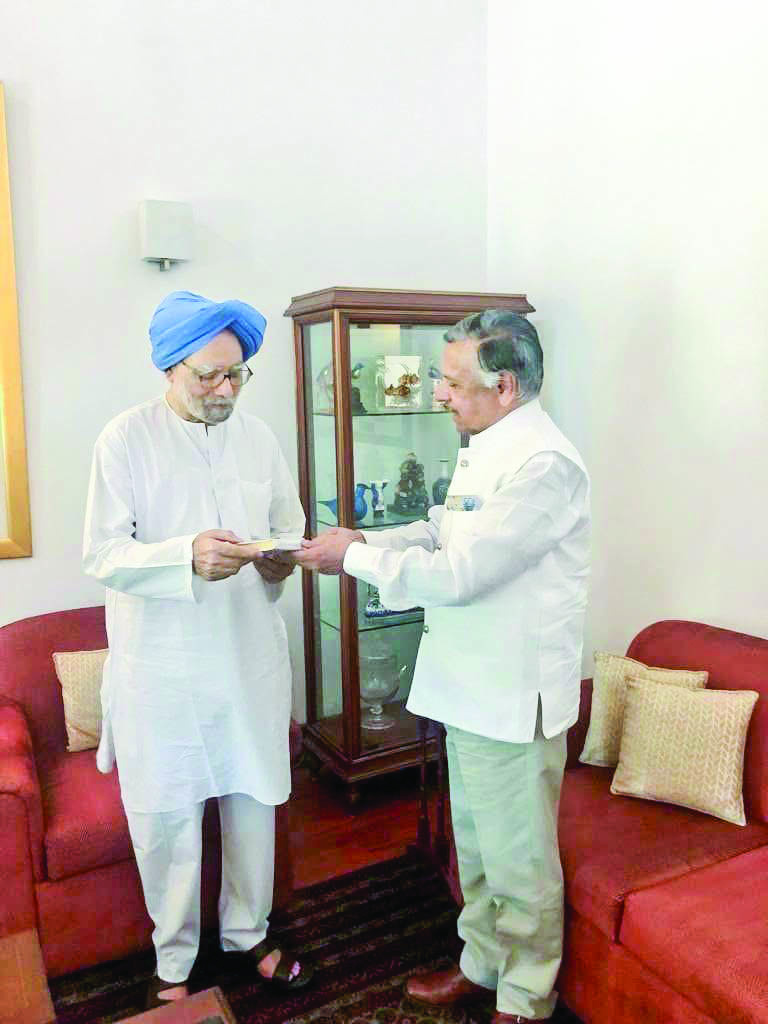Dr Singh gave the green signal for the development of many new weapons systems and platforms within India and acquisitions from abroad.
New Delhi: As a veteran, after my retirement from the Army I write off and on, primarily on matters strategic—either geopolitical or security related. But when the Editor of this newspaper asked me to pen my tribute to India’s “Accidental Prime Minister” I readily agreed to offer my humble respects to a rare human being, Dr Manmohan Singh, India’s Prime Minister from 2004 to 2014, who at 92, merged into eternity on 26 December 2024.
Tributes pouring in from all shades of political opinion in our beloved nation where politics has descended to abysmally low levels and become shorn of civility and dignity these days, yet all of them place Dr Manmohan Singh on a very high pedestal—that is the greatness of this self-effacing man who truly personified integrity, simplicity and humility as no one else has in contemporary times. He was the first Indian leader since Pandit Jawaharlal Nehru to be re-elected as India’s Prime Minister for a second term and the first Sikh to hold this post.
Way back around 375 BC, the famous Greek philospher Plato in his magnum opus, The Republic, had succinctly expressed that until philosophers are kings or the kings and princes of this world have the spirit and power of philosophy, cities will never have rest from their evils. Dr Manmohan Singh was neither a king nor a prince nor did he ever behave like one. He was the quintessential philosopher, or to put it accurately, an economist philosopher of global repute. Historically, philosophers are not renowned for action with alacrity or determination, but here was Dr Manmohan Singh who implemented, as India’s Chief Executive, many path breaking public-friendly economic reforms. That the then in power UPA’s National Advisory Council, headed by Sonia Gandhi, would have also fully advised and supported all these reforms is a matter of fact.
Dr Manmohan Singh’s academic background makes interesting reading. Graduating and attaining his Master’s degree from the Punjab University, Dr Singh was one of the few alumni from both Oxford and Cambridge Universities in Economics, obtaining a D.Phil from the Oxford University. That he put his vast knowledge of Economics to practical action in resolving many of India’s economic problems is indeed creditable.
In 1991, when India was undergoing pangs of economic hardship, he was appointed as India’s Finance Minister by then Prime Minister, P.V. Narasimha Rao. He did wonders to restore India’s economy in shape by cutting taxes, privatising some public sector companies, devalued the rupee and encouraged foreign investment. His reforms led to the revival of the economy, with industry growing, inflation down and growth rates ascending in the entire 1990s. He literally saved the nation from financial bankruptcy.
In mid-2004, when the UPA, under Congress president Sonia Gandhi came to power, Dr Manmohan Singh, in a surprising move, was nominated by the UPA to head the government at the Centre. Many reforms were initiated by the UPA government under his leadership like the Right to Information Act in 2005, the vastly popular MNERGA Act, which guaranteed employment to one member of each poverty stricken family, National Food Security Act in 2013, the Right to Education Act 2009 granting basic education to all till 14 years of age, besides many other reforms. The most important agreement with foreign powers was the signing of the India-US Civil Nuclear Agreement for which Dr Singh virtually staked his prime ministership as the Left parties, though in alliance with the UPA, were not in agreement with this cooperation to be fostered between India and the US.
Contrary to public perception that economists generally are against expenditure on defence as it is non-productive in nature, Dr Singh, as PM was more than concerned about India’s security and gave the green signal for the development of many new weapons systems and platforms within India and acquisitions from abroad. Many defence projects coming into reality these days had been conceived and commenced during Dr Singh’s time.
The launch of INS Vikrant, India’s first indigenous aircraft carrier was carried out in August 2013, while the IAF’s operating capability in the Northeast was enhanced by revamping advance landing grounds and improving dozens of major airfields. The Indo-US Nuclear Deal was also finalized during his tenure. INS Arihant, India’s first indigenously developed nuclear submarine was launched in July 2009 by PM Manmohan Singh himself. In October 2005, India had also signed a $3.75 billion deal for six submarines to be built by Mazagon Dock with transfer of technology. Tenders for 155 mm tracked self-propelled guns were also floated in 2007, whilst the acquisition of additional T-90 tanks and SU-30 fighter aircraft from Russia also endeavoured. The list of defence purchases is long and clearly conveys the build-up of the Indian Armed Forces during Dr Singh’s tenure.
Here I must end with a personal note. Three years ago, I had visited Dr Manmohan Singh to present my book, “Securing India’s Rise”. Meeting him I stated that it was an honour for me to meet him, but the great man replied that “it is my honour to meet a general of our great Army.” I was deeply touched. He asked me many questions and also explained to me the reasons for India not retaliating in the strongest measure to the Mumbai 26 /11 terror attack.
With the passage of time, Dr Manmohan Singh’s contribution to India in making it an economic giant will always be cherished. His selflessness and humility stand as a beacon for all leaders to emulate.
* Lt Gen Kamal Davar retired from the Indian Army.

